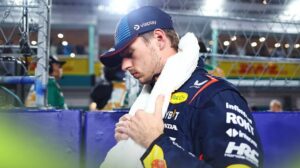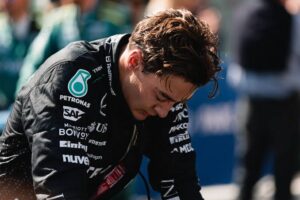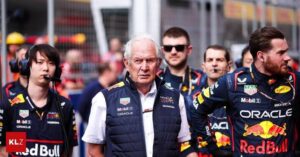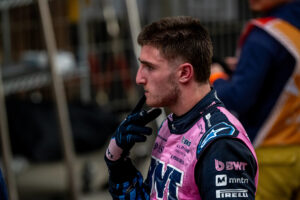JUST IN: FIA Investigation follows after Norris Questions Verstappen’…read more
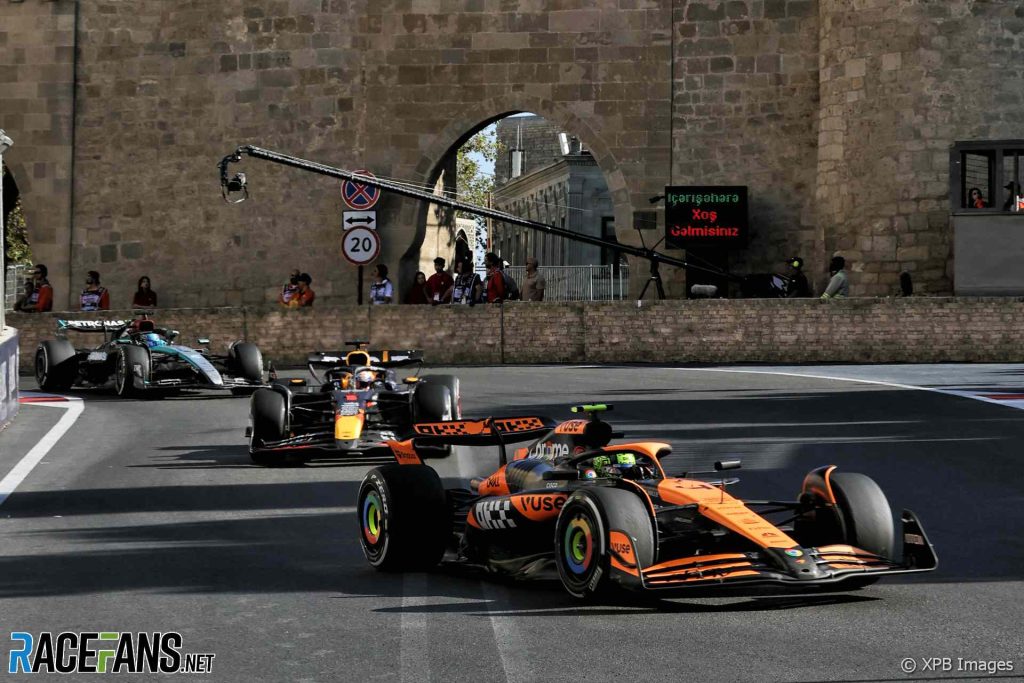
Lando Norris (GBR) McLaren MCL38. 15.09.2024. Formula 1 World Championship, Rd 17, Azerbaijan Grand Prix, Baku Street Circuit, Azerbaijan, Race Day. - www.xpbimages.com, EMail: requests@xpbimages.com © Copyright: Bearne / XPB Images
FIA Investigation FOLLOWS after Norris Questions Verstappen’…read more
Lando Norris has raised concerns over Max Verstappen’s actions during the Virtual Safety Car (VSC) period at the end of the Azerbaijan Grand Prix. Norris suggested that Verstappen might have violated race regulations by overtaking other cars during the VSC, a period in which overtaking is typically prohibited. This query emerged after Norris communicated with his team, expressing uncertainty about whether Verstappen’s moves were within the rules.
The VSC was deployed towards the end of the race, and Norris, based on his experiences with yellow flag conditions earlier in the weekend, found Verstappen’s behavior questionable. During qualifying, Norris had been forced to abandon a fast lap when yellow flags were shown due to an on-track incident, which heightened his awareness of race control regulations. He noted the similarity between his qualifying experience and the race scenario, where paramedics were on track, signaling that overtaking shouldn’t have been allowed under such conditions.
Norris explained his view after the race: “I had the ‘VSC’ on my dash with yellow lights, similar to what I experienced yesterday in qualifying. There was a crash, paramedics were on the track, and typically in these scenarios, overtaking isn’t allowed.” Based on this, Norris was surprised to see Verstappen overtaking and questioned it with his team. “He was overtaking,” Norris said. “I wasn’t sure if it was legal, so I asked my team. I didn’t think you’re allowed to overtake in those conditions, but maybe I’m wrong.”
This incident reminded Norris of the yellow flags that disrupted his qualifying lap, reinforcing his understanding that such signals are meant to neutralize the race and prevent any further accidents. Yellow flags and VSC periods are usually implemented to allow safety teams or emergency personnel to handle track incidents without the added risk of ongoing race action. Under these circumstances, overtaking is generally prohibited, which is why Norris felt justified in raising his concerns.
On the other side, Max Verstappen swiftly denied any rule-breaking and was adamant that his actions were in line with the regulations. Verstappen had already crossed the finish line when the VSC was triggered, which, according to him, meant the race had effectively ended, making overtaking permissible. In an interview with Sky Sports after the race, the reigning world champion stated: “I didn’t pass under the Virtual Safety Car. We crossed the line, the race was over, and there have been many examples in the past, even this year, where we’ve done exactly the same thing. So, for me, I’m a bit surprised by the reaction.”
Verstappen’s defense is grounded in the belief that after crossing the finish line, the normal restrictions under VSC or yellow flags no longer apply. He suggested that his team had already deactivated the race mode by the time the VSC was in place, which in his view, made overtaking allowable. His response suggests that similar scenarios have occurred in the past without penalty, indicating his confidence that he followed the rules appropriately.
Despite Verstappen’s confidence, the FIA has initiated an investigation into the incident, which involves not only Verstappen but also several other drivers, including Nico Hulkenberg, Pierre Gasly, and Esteban Ocon. These drivers are under scrutiny for potentially overtaking during the VSC after crossing the finish line, raising questions about the interpretation of the rules at the end of the race.
The investigation will primarily focus on whether the overtakes occurred after the drivers had crossed the finish line. This is a crucial factor in determining whether any regulations were violated. Overtaking under a VSC period is considered a serious offense due to the safety risks involved. However, if the race had officially ended, the regulations might allow for such maneuvers, which could clear Verstappen and the others involved.
The FIA’s findings could have significant implications for the race results and future interpretations of VSC regulations in similar scenarios. While Verstappen’s overall championship lead is unlikely to be affected, any penalties might alter the final standings for the Azerbaijan Grand Prix. The ruling will also provide clarification on how VSC rules should be applied in the closing stages of races, offering drivers and teams clearer guidance moving forward.
For now, Verstappen remains confident that he acted within the rules, but the investigation will ultimately decide if any penalties or adjustments to the race results are necessary.
.

